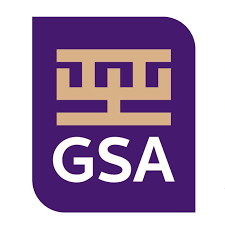The Ghana Standards Authority (GSA) has issued a public directive requiring that all imported automotive batteries undergo mandatory testing to ensure compliance with national quality and safety standards.
The directive, which took immediate effect, is aimed at protecting consumers and reinforcing Ghana’s regulatory framework for imported products.
“All imported batteries which do not meet the standard specifications as per tests conducted by the GSA will be detained and sent for re-export or any other retention action permitted by law”
Ghana Standards Authority
In a formal statement signed by its Director General, Prof. Alex Dodoo, the GSA noted that this initiative falls squarely within its statutory mandate to ensure that only products of acceptable quality, safety, and performance are sold in the Ghanaian market.
According to the GSA, recent laboratory data revealed that a significant number of automotive batteries entering the Ghanaian market fail to meet required performance and safety specifications.
“The Ghana Standards Authority (GSA) wishes to inform the general public, particularly importers, distributors, and retailers of automotive batteries, that it has been testing all imported automotive batteries entering the Ghanaian market”
Ghana Standards Authority

In response to the increasing failure of most battery imports to meet the “national standard,” the authority has intensified surveillance and enforcement at all ports of entry, signaling a zero-tolerance policy for substandard imports.
The agency emphasized that importers and retailers must conform to prescribed testing protocols or face regulatory sanctions, including port delays and potential financial losses when the sanctions for non-compliance kick in.
“Furthermore, all car batteries imported into the country will be subjected to conformity assessments under the GSA. Importers are therefore urged to ensure that their products are tested and authorised to use the GSA standard mark, to avoid delays or sanctions at the ports of entry”
Ghana Standards Authority
The directive is being implemented amid growing concern over the proliferation of poor-quality automotive products that pose risks to users and the environment. Automotive batteries, which are essential components in vehicle ignition and power systems, can become hazardous if defective.
The GSA’s intervention seeks to prevent dangerous incidents resulting from product failure while holding importers accountable for quality. The GSA has since intensified its outreach to relevant stakeholders in the supply chain.
Importers, distributors, and retailers are being urged to comply fully with the new policy to avoid legal consequences too. As a regulator, the GSA is working with port authorities, customs, and border agencies to ensure that all batteries are screened prior to distribution or sale.

The authority also reminded the public to look out for the GSA Standard Mark as an assurance of quality and compliance. “Protecting consumers. Ensuring quality,” the agency declared as part of its public education campaign.
The presence of the standard mark indicates that a product has been vetted and cleared through conformity assessment processes. The initiative is consistent with broader government efforts to sanitize Ghana’s import landscape and promote consumer safety.
The enforcement of quality control mechanisms has been a central policy direction in ensuring public health, environmental protection, and market discipline. Industry players are expected to respond to the directive by coordinating with GSA-approved laboratories to schedule product testing in advance.
While the authority has assured cooperation and guidance, it has also made it clear that ignorance of the law will not be an excuse for non-compliance.
The GSA concluded its notice by inviting stakeholders to contact the authority directly or visit its official website for further information on how to comply.
By reinforcing standards and holding importers accountable, the Ghana Standards Authority says it remains firmly committed to its mission of safeguarding consumer interests and maintaining product integrity across sectors.
READ MORE: Importers and Exporters Back GoldBod’s Push to Stabilize the Cedi























